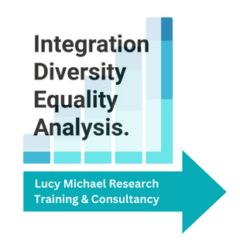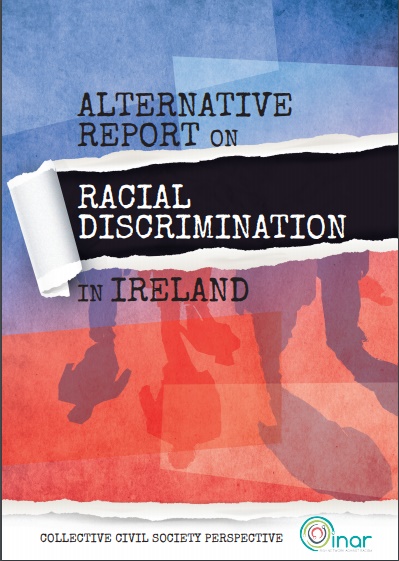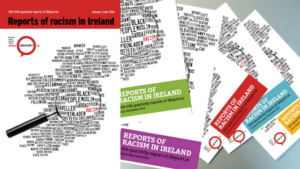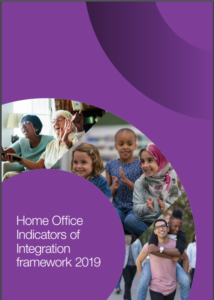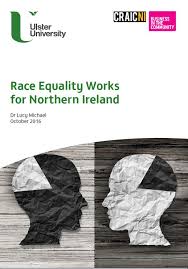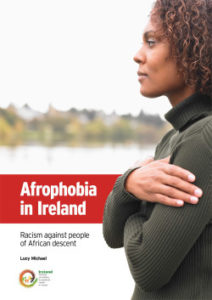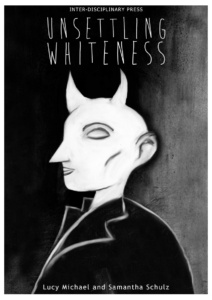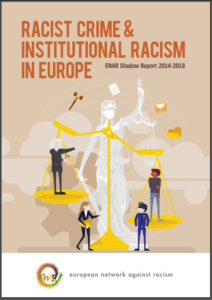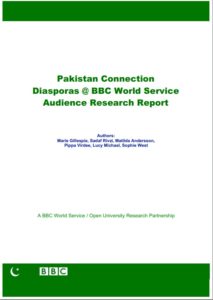FRA Research on violence, abuse and degrading treatment in residential institutions against disabled people
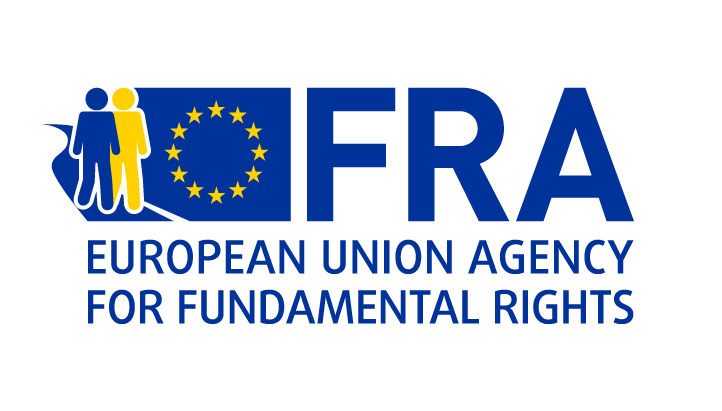
This report, informed by the UN Convention on the Rights of People with Disabilities (CRPD) examined the persistence of institutionalisation of disabled people persists and higher risk to violence and abuse in institutional settings. There is a distinct lack of evidence on the EU level of existing oversight, monitoring and enforcement mechanisms. Residents, service providers and oversight bodies were interviewed for their views on the effectiveness of safeguarding and monitoring.
Irish Congress of Trade Unions Stronger Together: Anti-Racism Workplaces and Trade Unions Project
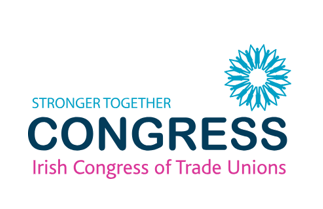
This programme expands the capacity of trade unions to respond to and prevent racial discrimination through a Train-The-Trainer programme, ICTU Toolkit on Anti-Racist Workplaces and Trade Unions, a Leadership programme for Migrant and Minority Ethnic Trade Union Members and research report on workplace discrimination and union membership .
Equality in the arts sectors: Ineligibility and Arts Council Awards

The Arts Council of Ireland’s Equality, Diversity and Inclusion team commissioned research on patterns of inequality in the awards of arts funding, to identify causes of unequal representation and make recommendations to address these. This follows our work with the Arts Council in 2022 to evaluate progress on their Equality, Human Rights and Diversity (EHRD) Policy and Strategy. Find out more here
European Shadow Report on Racism
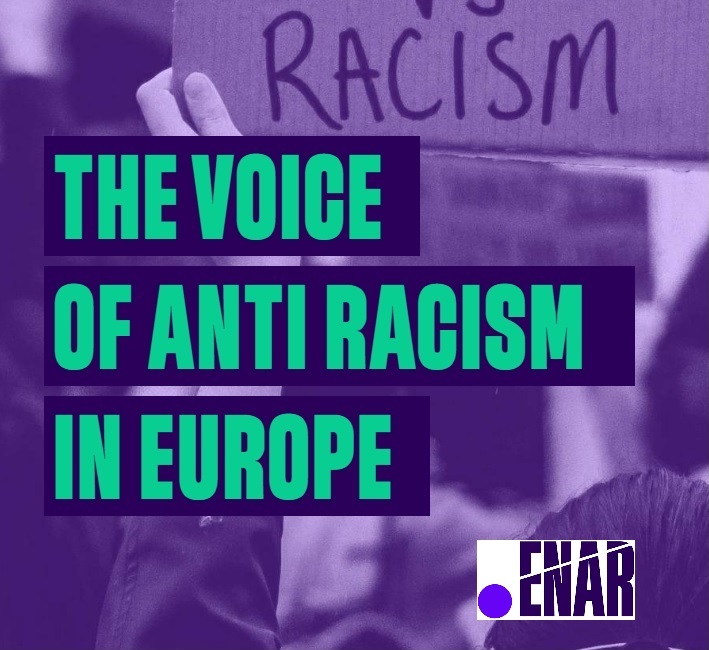
A review of structural and institutional racism and related discrimination across Europe for ENAR, the European Network Against Racism, exploring discrimination in politics, law, policing, business, education, health, housing, the arts, immigration policy and more in 19 EU Member States.
Inequalities experienced by Black Asian Minority Ethnic Traveller People
This study examined the inequalities experienced by Black, Asian, minority ethnic and Traveller people residing in Belfast in 2022. The report explores a wide range of challenges identified for both minority ethnic and migrant individuals in employment, housing, healthcare, education, leisure, political participation, access to justice, safety, economic inclusion, receiving language support, and cultural integration, as well as achievements in these.
It is the first Council commissioned report of its kind in Belfast, and is published at a time when the Northern Ireland government is under distinct scrutiny for its lack of action on race equality and inclusion. It was commissioned by Belfast City Council in partnership with Belfast Health and Social Care Trust and the Public Health Agency Northern Ireland.

The research was undertaken in partnership with the African and Caribbean Support Organisation of Northern Ireland (ACSONI) and Polish Language, Culture, and Affairs (POLCA).
A team of 11 researchers, including 8 peer researchers, conducted interviews with 131 residents in 9 languages.
Read the executive summary here and full report here
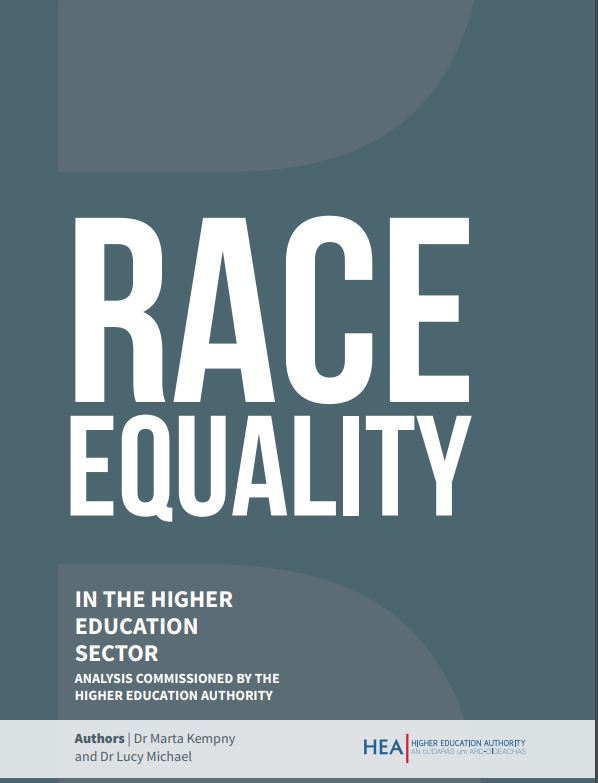
Race Equality in Higher Education
We analysed the first ever HEA survey on race equality in Irish higher education and the HEA published our results along with our recommendations. You can see our final report here and read our blog here.
We are pleased our recommendations have been adopted in the HEA Race Equality Implementation Plan 2022-2024 launched in September 2022. Keep up to date with latest news here
Research in Ireland on behalf of the EU Fundamental Rights Agency

- The right to political participation of persons with disabilities ahead of the 2024 European Parliament elections
- Criminal Detention in the EU – Conditions and Monitoring 2024
- Mapping and analysis of national human rights structures in the EU 2023
- Fundamental Rights of Children Fleeing Ukraine 2023
- Mapping Child Protection Systems in the EU 2023
- Fundamental Rights Report 2022
- Anti-Racism in Policing 2022
- Legal environment and space of civil society organisations in supporting fundamental rights and the rule of law 2022, 2023
- Anti-Muslim hatred database Update 2022
Irish Deaf Society Policy Papers
Know Your Rights Guide for International Protection Applicants in Ireland
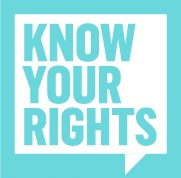
We have compiled a Know Your Rights guide for international protection applicants to be published by ICCL and the Irish Refugee Council. The Guide will aim to explain rights within the protection process, under the EU Reception Directive, and the range of broader rights under the Irish Constitution and human rights law that apply to everyone in Ireland. This includes civil, political, economic, social and cultural rights such as the right to protest, freedom of expression, freedom of religion, the right not to be subjected to inhuman and degrading treatment, the right to education and the right to earn a livelihood. The Guide outlines the current law in a clear and accessible manner to empower international protection applicants to both exercise and vindicate their rights. The research team includes Dr Niloufar Omidi and Roos Demol. The Guide is available at www.iccl.ie/know-your-rights/
Algorithmic bias in recruitment and human resources in Europe – a toolkit for employers
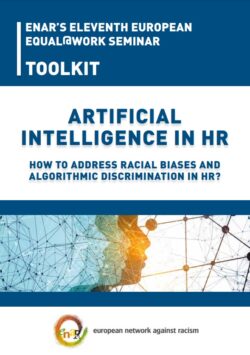
How can and should employers pay attention to bias risks and provide a sound resource for bias reduction in the context of rapid technological change? This forward-looking toolkit, grounded in a solid human rights framework and taking account of the intersectional experiences of ethnic minorities both as candidates and employees, demonstrates a strong case for doing so. The toolkit emphasises the advantages to business and other organisations of addressing racial bias in AI-supported HR processes, through reference to expanded labour potential, reduced costs, decreased liabilities, proactive risk assessments, increased in-house confidence in AI operations and usage, and increased trust and accountability. Read our blog
Church of Ireland Ethnic Diversity, Inclusion and Racial Justice initiative

On behalf of the Archbishop of Armagh, we conducted a survey of the membership of the Church of Ireland on diversity and inclusion in the Church across the island of Ireland, and on attitudes to and experiences of racial justice. The survey was open to all COI members & former members of the island of Ireland. The research has been designed with a group of ethnically diverse clergy and lay readers who have worked with us to make recommendations for future work. Read our blog here
Research report on the implementation of the UN Convention on the Rights of People with Disabilities
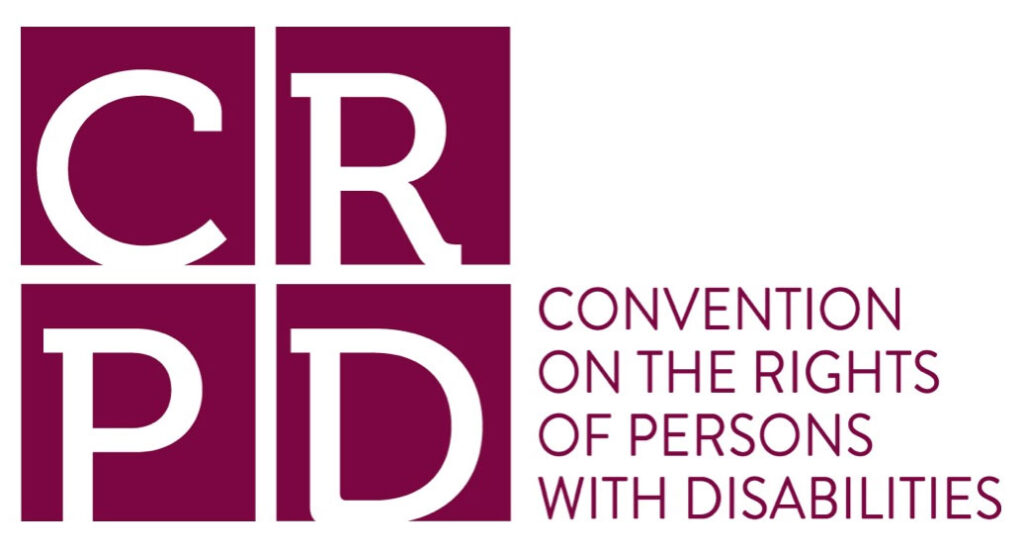
We facilitated and supported the DPO Coalition to prepare, develop and write a research report on the implementation of the UN Convention on the Rights of Persons with Disabilities in Ireland. The report identifies and highlights the barriers and issues of concern that prevent disabled people in Ireland from enjoying their human rights. Over 1000 people engaged with our research consultations through focus groups and surveys.
Voices of Syrians: Hearing from Resettled Refugees in Ireland
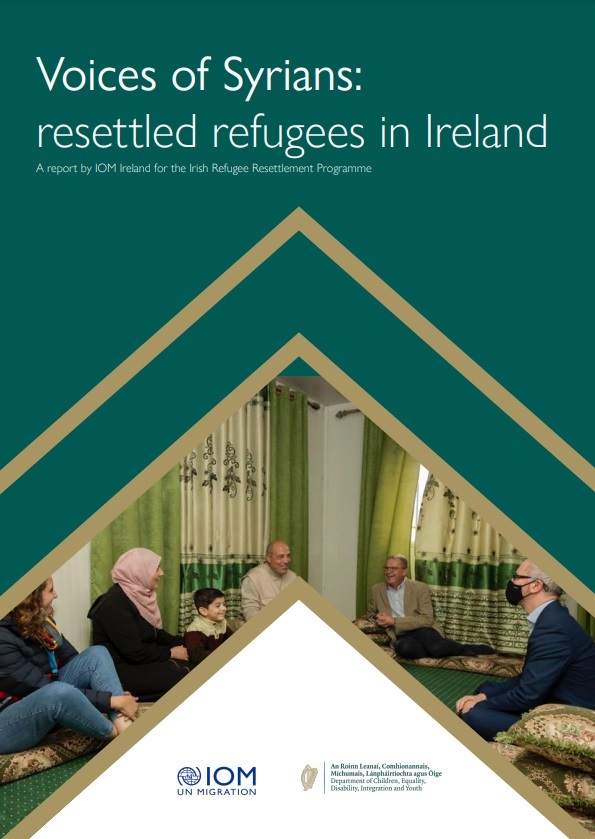
We led research into the experiences of resettled refugees across Ireland for IOM Ireland with a particular focus on opportunities for and barriers to integration. Five Arabic-speaking interviewers worked with us to conduct interviews with over 100 Syrian refugees across Ireland in 2021. The report was launched by the Minister for Children, Equality, Disability, Integration and Youth in August 2022.
Read more about the report here and news coverage here journal.ie, Belfast Telegraph, Irish Times
She Leads, We Lead Fingal: Developing structures for capacity building in Women’s Leadership
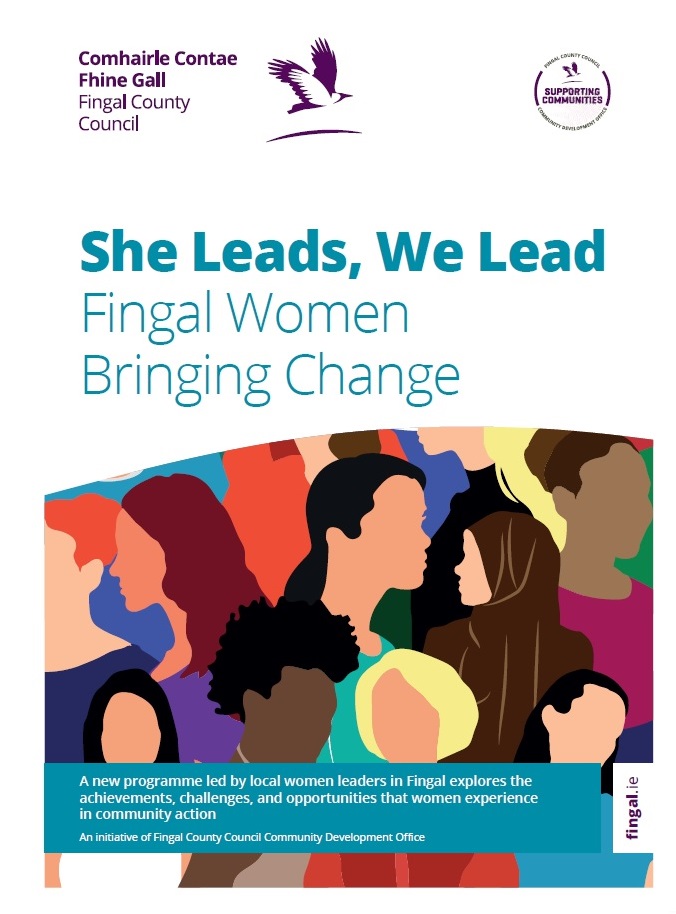
This leadership programme was delivered for Fingal County Council, and was designed and led with local women leaders in Fingal. It explores achievements, challenges, and opportunities that women experience in community action. Read more here
“Hiring for Diversity” Training
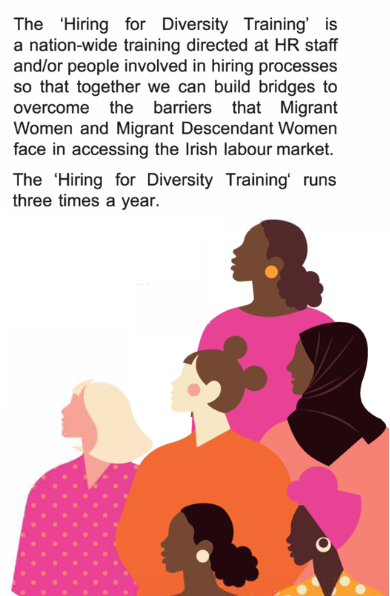
This bespoke training package developed for New Communities Partnership is directed at HR staff, recruiters, and/or people involved in the hiring processes of companies and organisations, with the aim of building bridges to overcome the barriers that migrant women face in accessing the Irish labour market and progressing their careers in the country. It was delivered to HR and senior staff in a wide range of public, private and NGO sector organisations between November 2020 and October 2022.
Developing capacity building in Integration planning and evaluation
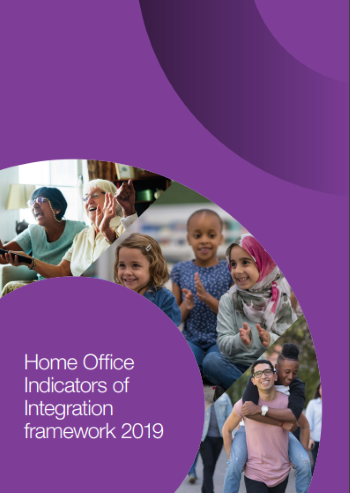
The Indicators of Integration framework, published in 2019 by the UK Home Office, is designed to support integration and improve interventions in a range of key areas. A comprehensive set of indicators, with guidance on data collection and analysis, facilitates measurement of integration, supports the design interventions to increase integration and to undertake evaluation of interventions.
This follow-up project, hosted by the International Organization for Migration-the UN Migration Agency, is designed to increase the capacity of local authorities and civil society organisations to use the framework through a process of consultations with staff in each sector, tailored face to face and online trainings, and bespoke Guide for Practitioners and training materials to support ongoing use.
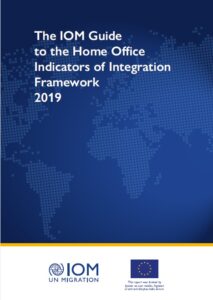
The Guide informs practitioners about the use of the IOI framework in integration measurement and interventions, and how you can use it in your activities, and provides a signposted step-by-step learning process to support practitioners to implement the framework in their planning, delivery and evaluation of integration projects. Access the guide at https://unitedkingdom.iom.int/indicators-of-integration-guide
Shadow Report to UN Committee on Racial Discrimination
The Irish Government presented its State Report to CERD (Committee for the Elimination of Racial Discrimination) in Geneva on 2-3 December 2019. In response to this, on behalf of the European Network Against Racism Ireland, I conducted research for and wrote a Collective Civil Society Alternative Report with a wide range of community and expert groups, which was the basis for representations at UN CERD. I also travelled to Geneva to support the delegation with expert research evidence as required.
iReport.ie Racist Incident Reporting System
The iReport.ie racist incident reporting system is the only non-governmental reporting system in Ireland with independent analysis. In 2013, I co-designed the system with ENAR Ireland, and have provided that independent analysis on an ongoing basis for publication to the Irish public and in specialist analyses for international organisations. Read our periodic reports
Immigrants as Outsiders in the Two Irelands
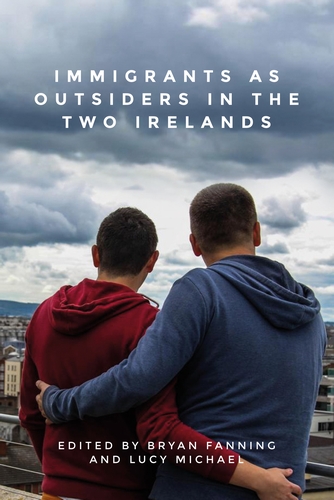
The book Immigrants as outsiders in the two Irelands examines how a wide range of immigrant groups who settled in the Republic of Ireland and in Northern Ireland since the 1990s are faring today. It asks to what extent might different immigrant communities be understood as outsiders in both jurisdictions. Chapters include analyses of the specific experiences of Polish, Filipino, Muslim, African, Roma, refugee and asylum seeker populations and of the experiences of children, as well as analyses of the impacts of education, health, employment, housing, immigration law, asylum policy, the media and the contemporary politics of borders and migration on successful integration. The book is aimed at general readers interested in understanding immigration and social change and at students in areas including sociology, social policy, human geography, politics, law and psychology. Order from Manchester University Press , Dublin stockists: UCD Campus Bookshop, Books Upstairs, Hodges Figgis , Belfast stockists: No Alibis
UK Home Office Indicators of Integration Framework 2019
In May 2019, the Home Office launched the revised Indicators of Integration framework (of which I was co-author) for understanding and measuring integration across diverse groups and communities. It takes seriously the concept of integration as a multidirectional process, with responsibilities shared across society. The framework is now being rolled out across the UK, and adapted by international organisations to develop integration programmes and responses.
Northern Ireland Life & Times Research Updates
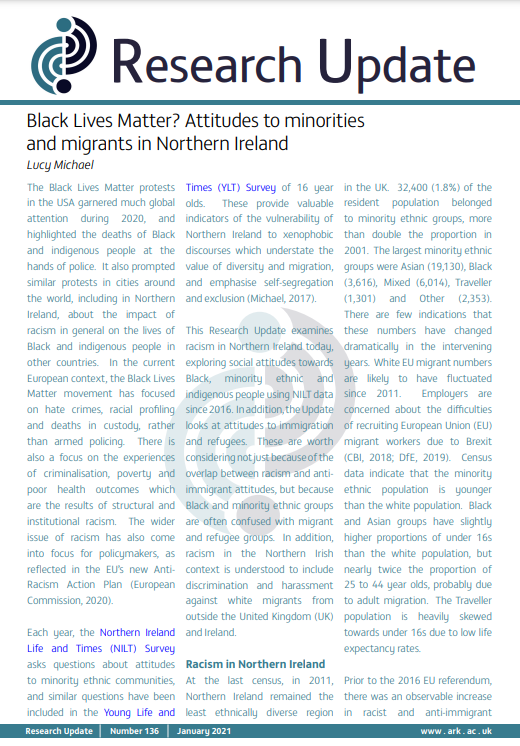
Black Lives Matter? Attitudes to minorities and migrants in Northern Ireland , ARK Research Update 136, February 2021. This report explores data on social attitudes towards ethnic minorities and migrants from the 2019 Northern Ireland Life and Times survey (www.ark.ac.uk/nilt), as well as the 2019 Young Life and Times survey (www.ark.ac.uk/ylt) of 16 year olds. In particular, the findings are discussed in the context of the Black Lives Matter movement.
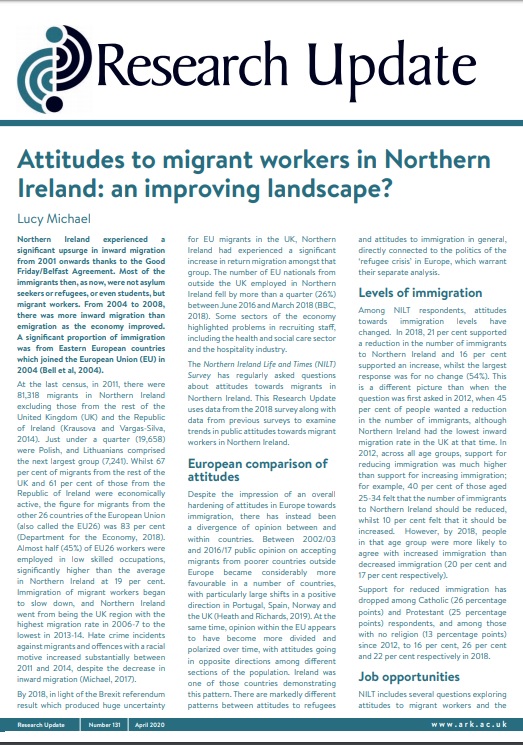
Attitudes to migrant workers in Northern Ireland: an improving landscape?, ARK Research Update 131, April 2020. This report explores data from the 2018 Northern Ireland Life and Times Survey on attitudes to migrant workers. Given the recent release of post-Brexit immigration plans by the UK government, it is timely to consider the level of public acceptance and recognition of the role of migrant workers in the economic and cultural life of Northern Ireland.
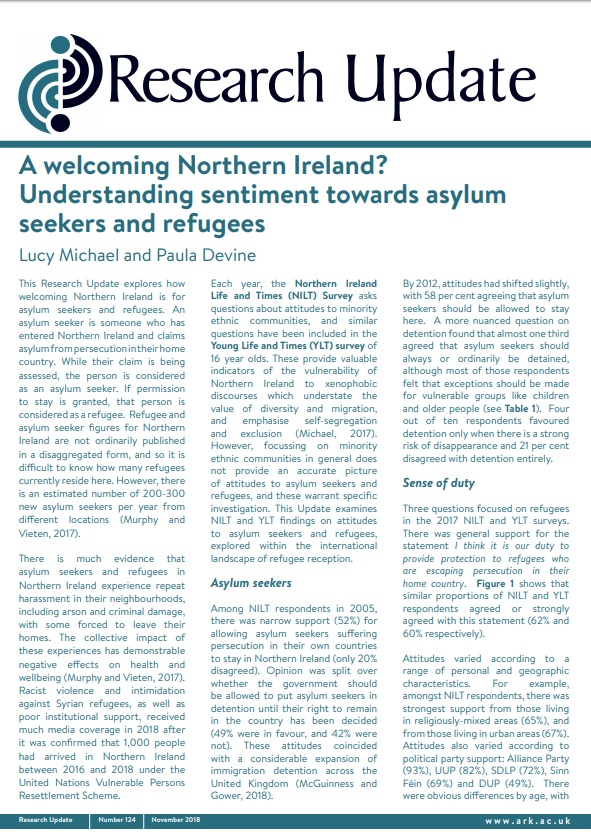
A welcoming Northern Ireland? Understanding sentiment towards asylum seekers and refugees, ARK Research Update 124, November 2018. This report reviews data from the Northern Ireland Life and Times Survey and Young Life and Times Survey on attitudes to refugees, asylum seekers and ethnic minorities. In addition, it considers the extent to which refugees both represent a unique focus for attention within the immigrant population and also offer a proxy for other kinds of views on immigration.
Race Equality Works for Northern Ireland
Race Equality Works for Northern Ireland demonstrates the challenges of creating anti-racist workplaces and highlights good practice by employers in Northern Ireland today. The research, which has been conducted in partnership with Business in the Community NI and CRAIC NI, adds a solid evidence base to understandings of how employers are benefitting from and supporting ethnic diversity in the workplace, and how they are planning for diversity in future workforce development.
Balbriggan Community Research
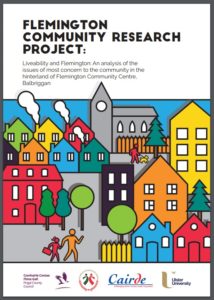
Liveability and Flemington: An analysis of the issues of most concern to the community in the hinterland of Flemington Community Centre, Balbriggan was a research project undertaken in partnership with Cairde and Flemington Development Group. I provided training for a team of community researchers, supported the selection of methods and design of research tools, and completed the final analysis of the data collected. The report showed high levels of integration in a period of rapid diversification, despite frustrations with discrimination in policing and education.
Afrophobia in Ireland
The Afrophobia in Ireland report with the Irish Network Against Racism revealed the continuing experience of racist violence and harassment against people of African descent in Ireland today, highlighting the frequency and brutality of racism against people in this category. Afrophobia, is a relatively new term used to denote key specific forms of global racism which people of African descent have experienced throughout the history of racism. In Ireland, as this report demonstrates, racism against people of African descent is not a new phenomenon at all, but one which has failed to be recognised by the State and wider society, even as it has evolved from colonial times. Afrophobia has contributed to the racialisation of Irish identities, both in Ireland and overseas, resonated with anti-Traveller racism at home, and found fertile ground in events such as the 2004 Citizenship Referendum. The timing of this report is significant, coinciding with the beginning of the United Nation’s International Decade of People of African Descent, providing an opportunity for us to examine Afrophobia in Ireland in the context of the wider life experiences of people of African descent, in Ireland and globally.
Unsettling Whiteness
The book Unsettling Whiteness brings together an international collection that considers anew the politics, practices and representations of whiteness at a time when nations worldwide continue to grapple with issues that are underwritten by whiteness. It draws together case studies of the performance of whiteness from significantly different political and social contexts with shared purpose; to investigate (re)constructions of whiteness, to explore the mechanisms which give whiteness power (and make power itself whitened), and to dissect the social processes through which whiteness is made visible and invisible. The collection makes a significant contribution to contemporary debates on whiteness by unsettling historical definitions and examining artistic, intimate and institutional attempts to reinforce or dismantle white norms and privileges. The case studies and analyses offer insightful reading on their own, but together offer a unique transdisciplinary approach to the complex task of exposing, resisting and subverting racialised domination across social relations today.
Other projects included:
Racist Crime and Institutional Racism in Europe is the latest Shadow Report from the European Network Against Racism (Brussels). ENAR’s report, covering 24 EU Member States and including Ireland, provides data on racist crimes between 2014 and 2018, and documents institutional practice during the recording, investigation and prosecution of hate crimes with a racial bias. It reveals how subtle forms of racism persistently appear in the criminal justice system from the moment a victim reports a racially motivated crime to the police, through to investigation and prosecution. This leads to a ‘justice gap’: a significant number of hate crime cases end up being dropped as a hate crime.
The Pakistan Connection report was part of the Open University/BBC Tuning In project, bringing together a community of inter-disciplinary researchers and specialists in a dynamic evaluation of the BBC World Service. With an overall audience of 180 million across its radio, TV and online services, increasing use was made of the opportunities for public debate offered by the international and transnational ‘conversations’ it facilitated. The report was part of a larger project investigating why and how certain diaspora groups connect with their home countries via the BBC World Service (BBCWS).
